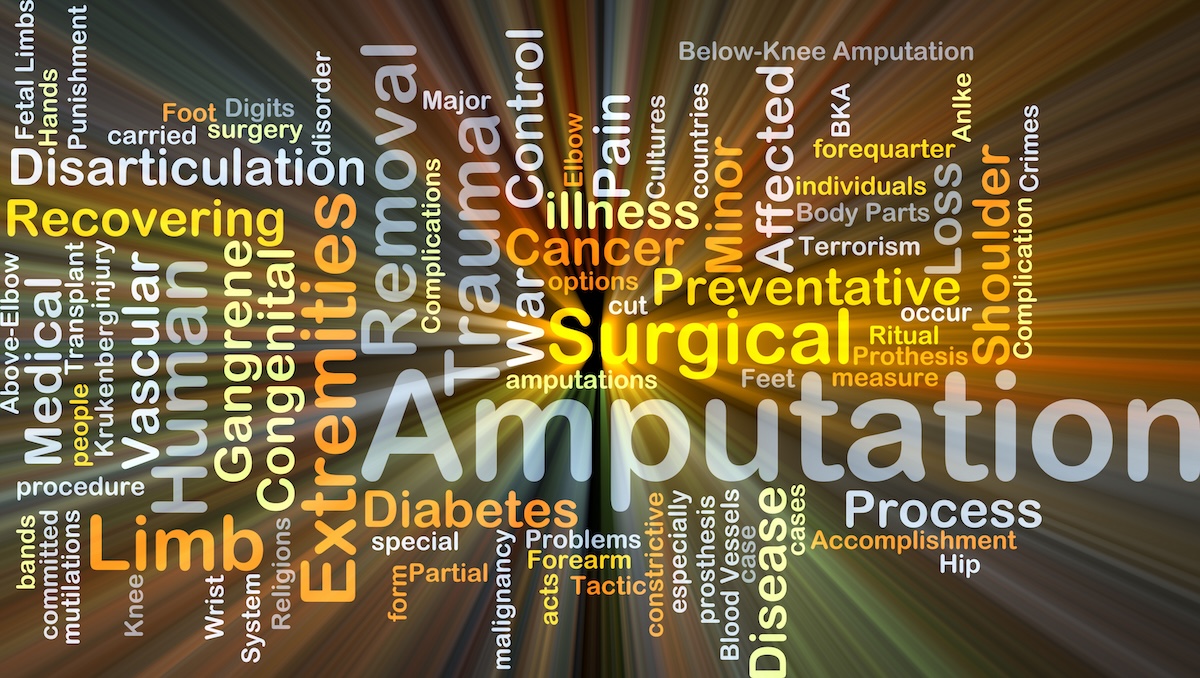In the Mississippi Delta, which has the highest amputation rates for Black patients in the country — three to four times the national average— Dr. Foluso Fakorede, MD, CEO of Cardiovascular Solutions of Central Mississippi, an interventional cardiologist, has witnessed firsthand how the lack of education on treatment options for peripheral artery disease has impacted his community.
Dr. Fakorede notes that in Southern rural areas, there is a high incidence of diabetes, obesity, high blood pressure, and, in some cases, tobacco smoking that leads to plaque buildup. “80% of the patients I see are Black,” he explains. “These elderly folks started dipping and chewing tobacco when they were eight or nine. Back then, they were told it would keep the worms away.”
There are many health disparities in the Delta, including education, economic, transportation, and housing. The crisis heightens when you also layer in healthcare issues, including underinsurance, lack of insurance, and communication issues. “So the risk factors include sugar, the pressure, and it’s not well-managed, and we wait for them to end up in the ER with a gangrene foot. And that doctor looks at them and says, ‘Well. Chop, chop, that’s the treatment. There has been a lack of awareness, not only on the patient side but also on providers; we need to have a conversation.”
Dr. Fakorede notes that if you use cancer as an analogy, where we catch it early in stage in stage four. The mortality rates of this disease and its advanced ages are worse than most cancers,” he explains. “60% of patients will die within five years from critical limb ischemia, which is an advanced stage of PD. Compared to breast cancer, that is double at that stage.”
This crisis is not just happening in Mississippi. It is also in rural areas of Georgia, South Carolina, Alabama, Arkansas, Louisiana, and Texas—even the urban cities of Philadelphia and Chicago. Our communities are on fire, and we didn’t even know it.
Four Organizations Come Together to Form The Pulse Alliance to Raise Awareness About PAD
Dr. Fakorede is a member of the Association of Black Cardiologists, one of four organizations that have come together to spread the word about the amputation epidemic. Other organizations, including the Society of Interventional Radiologists, the Society for Vascular Surgery, and the Society for Cardiovascular Angiography & Intervention, sound the alarm about this issue.
- In a survey conducted by the Pulse Alliance, 70% had never heard of Peripheral Artery Disease.
- Nearly 80% of Black and Hispanic adults reported never having a doctor or healthcare provider discuss PAD with them.
- There was a disconnect between the risk factors (diabetes, high blood pressure, smoking) and their personal perceived risk. People with diabetes have 3xs the risks for PAD, while 80% of patients with PAD are smokers.
- We are twice as likely to get a PAD diagnosis and four times as likely to have an amputation.
- Over half (53%) of respondents would wait more than a week with ongoing leg pain before calling their doctor.
Amputation Isn’t the Only Option
According to Dr. Goke Akinwande, MD, Medical Director, Vascular and Endovascular Specialist, and an interventional radiologist who practices in St. Louis, this epidemic is not our community’s fault. “It’s the physician’s fault; we don’t educate people correctly,” he explains.”So we call it the sugar, but are your legs being cut off because of the sugar? That is usually the conversation. However, diabetes is challenging on the small vessels in the leg. Your arteries get smaller as they go down to the foot. When you don’t have enough blood flow to the foot, it causes sores, which become infected.” Dr. Akinwande says to think of it as having a hose tied to a faucet. When you smoke, on the other hand, it impacts the faucet itself and the distal vessels leading to the feet.
“If you have foot pain that doesn’t go away, or it gets worse when you walk or asleep, get it checked out, ” Dr. Akinwande says. “Most primary doctors blame it on neuropathy. Do you know how many patients come to me on drugs for neuropathy? Patients may need an imaging study to see what is going on. So the foot doctor or vascular specialist is your friend.”
“So I’m an interventional radiologist and in St. Louis, a specialist for a more severe form of peripheral arterial disease called critical limb ischemia,” Dr. Akinwande says. “At this point, there you have pain all the time, and the artery is blocked. So, have figured out a way to get through the blockage, get a balloon up, and get a stent in.” When he started his practice, Dr. Akinwande thought many surgeons and interventional cardiologists were also doing this procedure, but they weren’t, and since then, through word of mouth, it has consumed his practice.
Educating the Community
While they were raised on the East Coast, both Drs Fakorede and Akinwande are committed to connecting by using methods of education that help them understand how to improve their health. When Dr. Akinwande was on the faculty of a teaching hospital in St. Louis, he drove to the north side of town where the Black folks live to observe the community; he met a Black female podiatrist there. They began doing health fairs together, and she still refers patients to him today. He talks to patients about ways to change their diets, then asks them to send photos of their Thanksgiving meals, with details like what kind of meat they put in the greens.
“I believe in the direct-to-consumer approach; you’ve got to meet people where they are. That has been my successful model here. People have to realize that most people don’t walk into the doctor’s office to have these conversations,” Dr. Fakorede says. “They go to the streets, churches, civic organizations, sororities, fraternities, The Chamber of Commerce. My approach has been to disrupt in a positive way, and they can see that you care.” He says it opens the doors to conversations for concerned family members, those with personal questions who wouldn’t otherwise inquire.
“I talk honestly to my patients in a language they understand. “Hey, listen, that sweet tea you drink is why your sugar levels, hemoglobin, and A1C number, which is a factor in trend in why your plaque buildup is higher, and that leads to no blood flow and your circulation shutdown,” Dr. Fakorede says. “If we can get your sugar controlled, or you can quit that sweet tea, half of those carbs, that will improve your sugar and give you a fighting chance to say, ‘Hey, give me another go at this.’ That’s what’s missing in the conversations with our patients down here.”
In his office, Dr. Fakorede found a solution for patients who got lost in physician-speak. “One thing I’ve noticed is when we doctors walk into rooms with white coats, there’s reverence sometimes that patients get lost in thought. When the doctor asks, ‘Do you have any questions for me?’ Many are intimated,” he says. “So when the doctor walks out, they get upset and ask the nurse, ‘Can you please repeat what s/he told me?’ So now, I bring in visual aids to explain whatever I am talking about; I speak at a fifth-grade level, use analogies, and ask the patient to repeat the information so I know they understand it.”
Prevention and Screening Recommendations
We have reached a crisis level because our providers haven’t been screening us, and we haven’t known about the tests to ask for. So here is what we need to know about who needs to be screened and when for PAD:
- If you are over age 50, have a history of diabetes, or have used tobacco, dipped or chewed tobacco
- If you have a heart attack, coronary artery disease, have a stent in your heart, or have a stroke.
- If you have had diabetes for over ten years, and sometimes your legs hurt (or feel cold at times)
- If you have a family history of amputation
- When you go to Sam’s Club and can’t get through the entire place, you must rest because your leg hurts. Then it happens all the time, even when you are asleep. If you have a sore, blame a mosquito or spider bite, and it isn’t improving.
- Your foot looks funny. It’s dry, scaly, and always ashy, and no amount of lotion seems to help.





















Discussion about this post